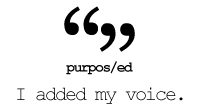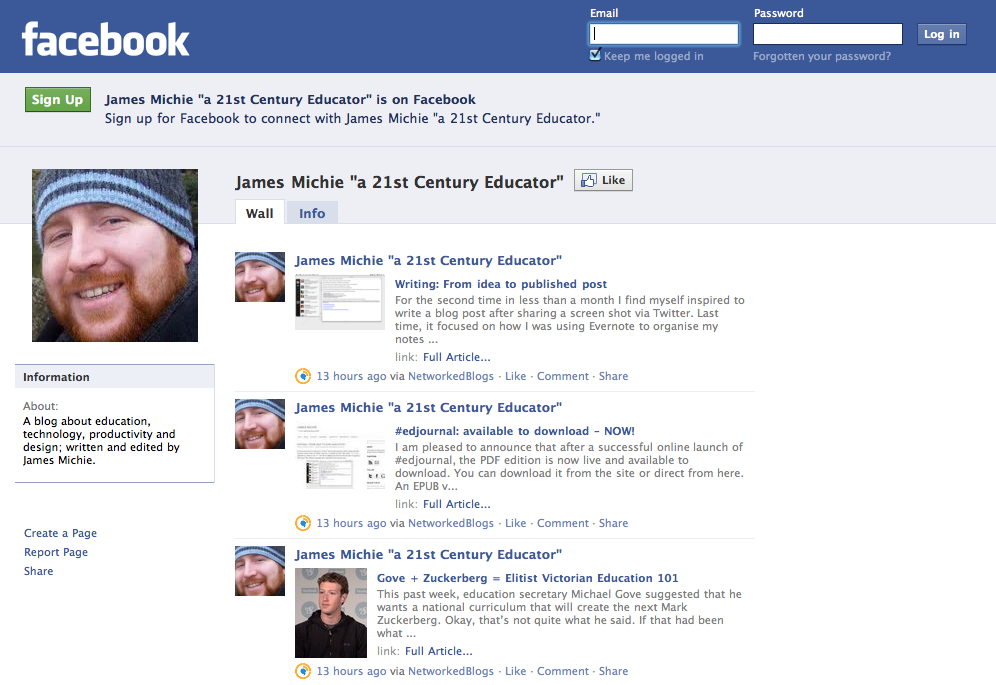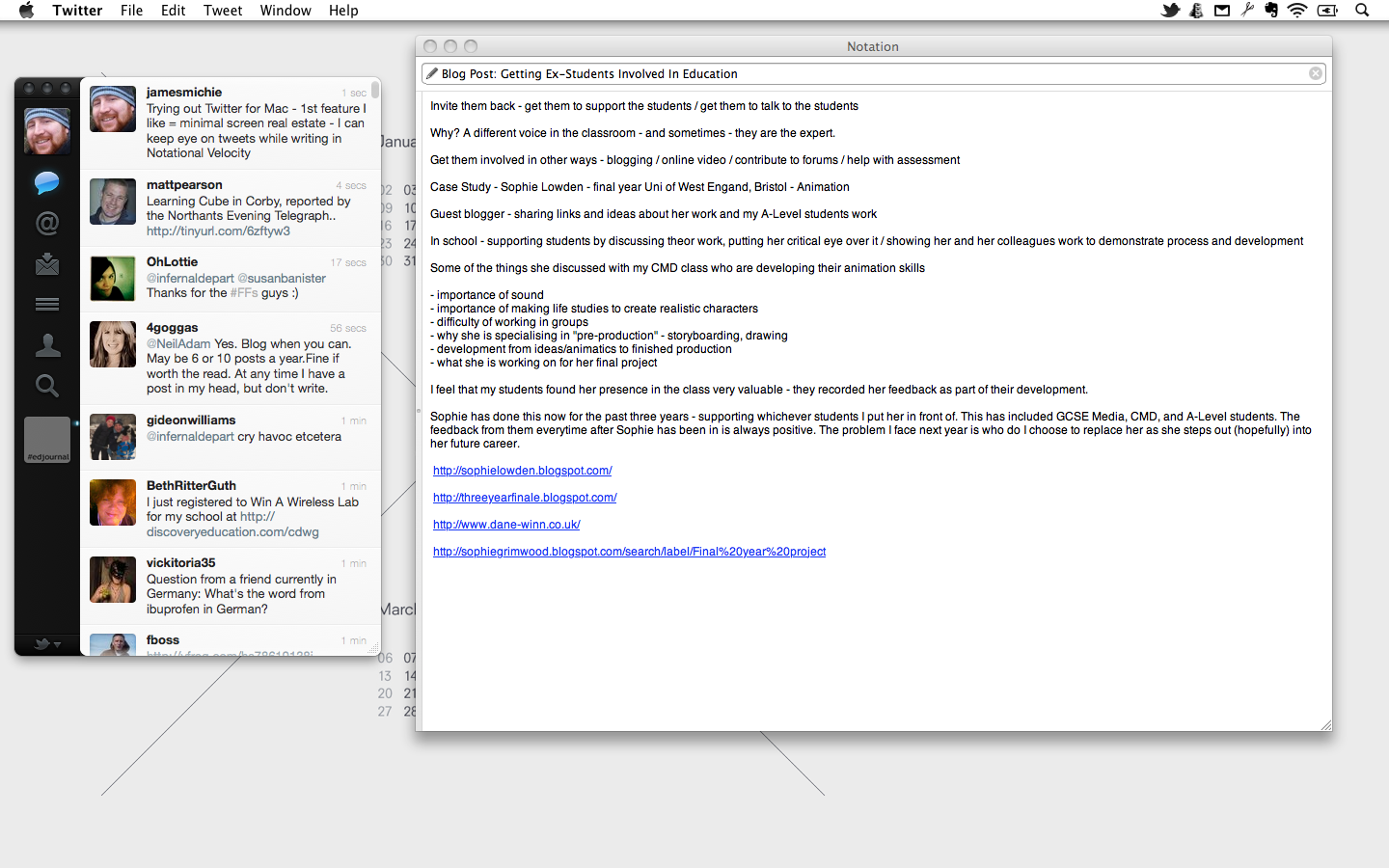Having shared some of my thoughts on the challenges facing education on Friday, I have spent the last couple of days reading and commenting on a number of the fantastic purpos/ed posts submitted by educators across the web as part of Doug Belshaw and Andy Stews’ #500words campaign.
One post that really grabbed my attention was Fred Garnett’s post: ‘The Purpose of Education’. Fred suggest that our position as subjects rather than citizens has significantly impacted on our acceptance of the ‘National Curriculum’ for this long. He also, draws upon many different voices including Pat Kane and Sugata Mitra to help add clarity to his belief that education needs to be far more democratic built upon collaboration and learners’ interests. It was Fred’s reflection on his own teaching experiences though that really made me think and forced me to comment on the post:
Having taught Politics to rich kids in the USA and then Computing to poor kids in Lewisham I concluded that the only difference between them was that the poor kids expected to fail. I decided that I should focus on motivating them to believe in themselves rather than burying them with curriculum facts.
This got me thinking (particularly in terms of school based education) that the challenges facing education are effected by the wealth of the area/community in which a particular school exists.
I asked Fred if it was okay for me to republish my reply here and he enthusiastically said yes. Below is a slightly edited version of my response to Fred’s post, you can read the post and see my response in its original context here.
—
Education: A dichotomy of challenges?
Great post Fred, I think your contrasting teaching experiences in the US and here in the UK highlight two distinct challenges that face educators today.
Challenge one is faced by educators teaching in communities where ‘expected failure’ has become the norm and thus turned a community (particularly the young) against education. They don’t see being smart and learning as ‘cool’. To them learning reeks of potential failure and so they ridicule it, diminishing its value (in their eyes).
Challenge two is faced by educators in far more affluent areas where young people have greater opportunities and value their time in school, not necessarily for the learning experiences but for the grades that they wish to achieve in order to take the next steps towards their ‘expected future success’.
Educators who find themselves facing one of these challenges have an equally difficult path to tread.
Educators facing challenge one have the inarguably difficult task on motivating young people who see little or no value in education – reinforced not only by their peers but by parents, by their neighbourhood, by the lack of opportunities within their community. They have to find ways to show them that they can be successful and to raise their expectations.
Educators facing challenge two on the other hand have to fight apathy from some while helping many others to understand that failure is a valid and valuable learning experience. This is difficult because it is not just the students who see failure as a bad thing, it is the parents, other teachers and the government who have fostered a society that judges success based on grades and financial worth.
To put this into an equation: Better grades + Better University = Financial Success.
With this mindset firmly entrenched it is exceptionally difficult to convince some youngsters that they can learn as much from failing as they can from succeeding. The conceptual logic for many is beyond them.
And these two challenges are not separate sides of a coin. In fact they are indelibly intertwined. The parents of challenge two children place them in direct opposition to the children of challenge one, and vice versa. Children who believe that failure is unacceptable tend to look down on those who fail and this show little empathy towards poorer people for example (I am massively generalising here) and in turn children who see success as unachievable sneer and mock those people who in society seem to be successful (all be it financially).
A society divided
So, where am I going with this? I think that education has to be about opening doors for people of all walks of life. It has to transcend culture, religion, wealth, race, age and so on. But to do that society has to change. The biggest challenge facing education and the one that will have the hugest impact on helping to decide what the purpose of education is, is whether or not the richest and the poorest in society can stop seeing each other as different and find common ground. Perhaps the common ground should be education, perhaps schools are the place for this common ground to be forged, perhaps schools need to be opened up and put right at the centre of each and every community? Perhaps schools can help mend a divided society?
Centres of Learning
I have been following with interest the furore over the potential closure of many public libraries. Some have suggested that a potential solution would be for the local school library to be used by the public as well. Some thought this sounded great, others were horrified by the idea convinced that it would put children at risk. Have we gone mad? Are young people not around adults all of the time when they leave school at 3:30? Do we really believe that every single adult who walks into a school is a child molester or pedophile? I think that the idea of making the school library the public library is a stunning idea. I think we should go further and rebrand our schools as ‘Centres of Learning’ where anyone of any age can come and take classes, use the library, gain access to IT equipment. Why should a child of 14 not sit next to an adult of 44 and learn French. I am sure when the 14 year old turns around to the 44 year old and asks why they are here, the answer will be as valuable learning experience as any – particularly as that answer would likely be: “because I wished that I had learned it when I was in school.”
Think of the potential value of young people sharing their resources with their elders; their parents and their grandparents. They can teach each other. I think as a society we have forgotten what a community is. I think we have forgotten to value all types of learning putting education solely on the hands of the government and schools. Education belongs to the community – to the people – it is for everyone!
—
If you want to read more on the purpose of education and the challenges facing it check out all of the #500words posts here. Along side Fred Garnetts post, other notable posts (IMO) include Tom Barrett’s very personal post: ‘What is the purpose of education?’ (with 34 comments and counting) and Dean Groom’s unique take: ‘purpos/ed’, applying his knowledge of games design to the question.



